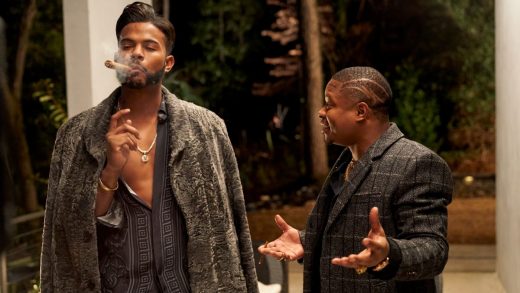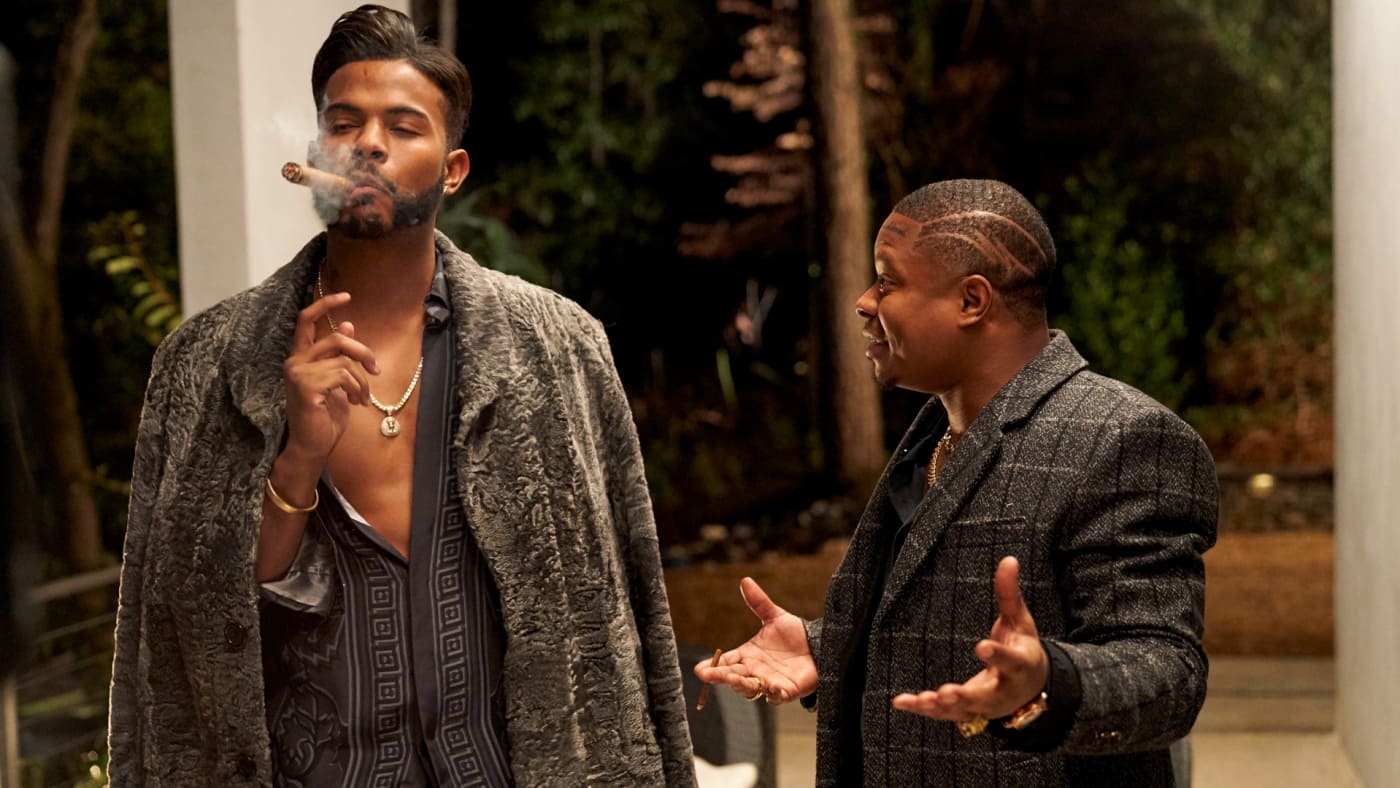“Super Fly” influenced hip-hop. And hip-hop influenced the remake
Hip-hop didn’t even exist in any mainstream sense when Super Fly came out in 1972, but the seminal Blaxploitation film about a drug dealer trying to get out of the game had a massive impact on the genre. Now that the story of a Katt Williams-haired cocaine kingpin has a fresh update, hip-hop is returning the favor.
“Super Fly is a big part of hip-hop culture,” says Director X, the heavy-hitter music video maker who helmed the remake, in theaters today. “For a very long time, it seems like almost every rapper talks about the time they spent in the streets as a drug dealer of some kind. Some of them are faking; some of them are not. But the subject matter and the world is very familiar to the audience. I don’t remember when I first heard of Super Fly, it’s just something I always knew about. It was in the ether.”
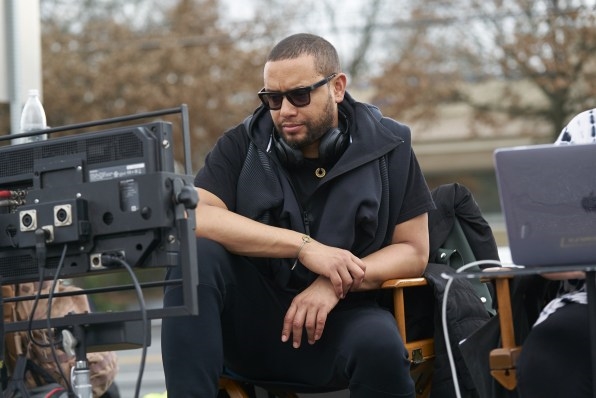
Part of the way Super Fly lodged itself in the hip-hop atmosphere was through the airwaves. The original film’s theme song, Curtis Mayfield’s funk classic “Pusherman,” has been sampled on at least 25 rap tracks over the years. It should come as little surprise that blow-obsessed Pusha T once sampled the song (and the film’s entire deal, so to speak), but “Pusherman” has also been interpolated by everyone from Chance the Rapper to Eminem. Mayfield’s masterpiece is a stone cold jam, but it’s not only the sound that makes an impression on so MCs; it’s what the song represents. The story of Priest Youngblood (played by Ron O’Neal), who’s trying to hustle enough money to leave the life behind, has resonated deeply with four decades’ worth of rap royalty.
“There were a lot of elements that made it something special,” says Director X, who has made videos for Rihanna, Drake, and Jay-Z. “Every culture around the world has a fascination in some way with the underworld: the mafia, Mexican cartels, Russian gangsters. So you have the underworld element, the amazing music, the fashion and the style, and the movie being really raw—like, raw in a way that I wasn’t comfortable going with. I mean, they snort coke to say hi to each other. Literally. But, for what it was in its time, nobody was telling these kinds of stories.”
Now that Director X is the one telling the story in 2018, the soundtrack has been updated with songs by Atlanta-based trap godhead Future—who is like the Curtis Mayfield of his day, if Curtis Mayfield loved autotune and Dirty Sprite. The new movie is also populated by rappers like Big Boi and Rick Ross, who act in the film. But the hip-hop influence runs way deeper than the soundtrack and the cameos.
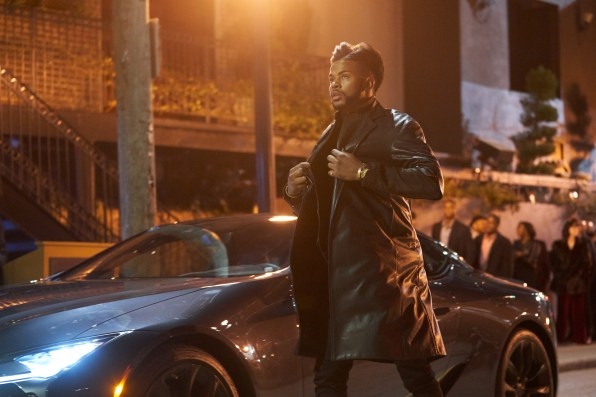
A wannabe drug-dealing rapper character
We meet our antihero, Priest Youngblood (played by Trevor Jackson), who now has a sleek pompadour instead of a flat-ironed hair-waterfall when he has to shake down Litty (Allen Maldonado) for past-due drug money. Litty is a rapper who may have watched Super Fly one time too many.
The sequence recalls a moment from the original film in which Priest refuses to back down when collecting cash. In the new movie, it’s not an accident that the person he’s telling to pay up is a rapper. “That scene is about ‘If I don’t get my money tonight . . .’” says Director X. “One of the classic scenes of the original Super Fly is when Freddy owes Priest money, and it’s a, ‘If I don’t get my money tonight . . .’ [threat] kind of thing.” This new scene isn’t related to anything from the original film, but it’s inspired by something from it. We just needed the right person for Priest to need to get his money from.”
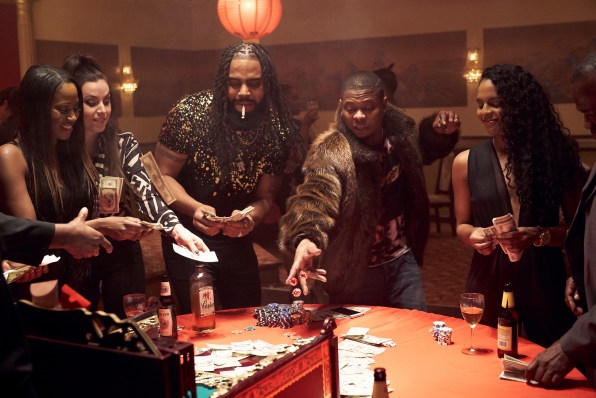
A character singing Chamillionaire’s “Ridin’ Dirty”
Not since Kanye West’s “Golddigger” made a cameo in the Spike Lee joint Inside Man, as a ringtone on a white banker’s phone, has a rap song been so well used within the world of a film. Not to give away the joke, but Chamillionaire’s 2005 hit, “Ridin’ Dirty” finds its way into the new SuperFly in the most paradoxically appropriate way possible. “I think that’s one of the funniest parts of the movie,” Director X notes.
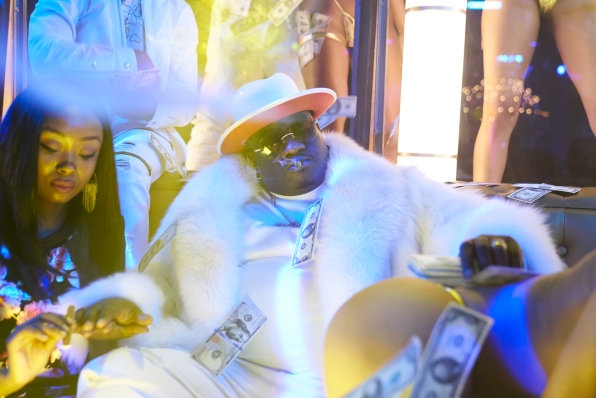
A hip-hop video aesthetic
The same larger-than-life, heightened reality vibe and flagrant flaunting of production values that mark many of Director X’s music videos are on full display in the new SuperFly.
“When you’re making a music video, you’re showing the dream,” he says. “It’s basically a superhero version of the rapper’s life. And that’s a bit of what we’ve got going on here.”
Whether it’s a stylishly shot Lamborghini car chase or a rain-making scene set inside an almost aggressively opulent strip club, several scenes feel straight out of the video for a fire-first single.
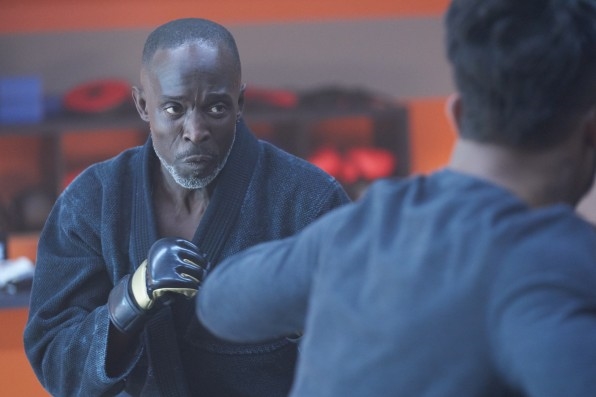
Politics, the hip-hop way
The new SuperFly is political in the way that hip-hop is—in that it addresses topics like police brutality and racism with very specific, very current references. For instance, police brutality is a major theme of the new film and one car chase ends with the destruction of a Confederate monument.
“The original film had the storyline of the cops giving the drugs to Priest, which is a commentary on the relationship between drug dealers and police in the black community,” Director X says. “That’s a pretty big bombshell to drop on people in 1972. But now, the larger issue that you hear about is police violence in the black community. The changes between then and now are just what they gave us to work with.”
(54)

